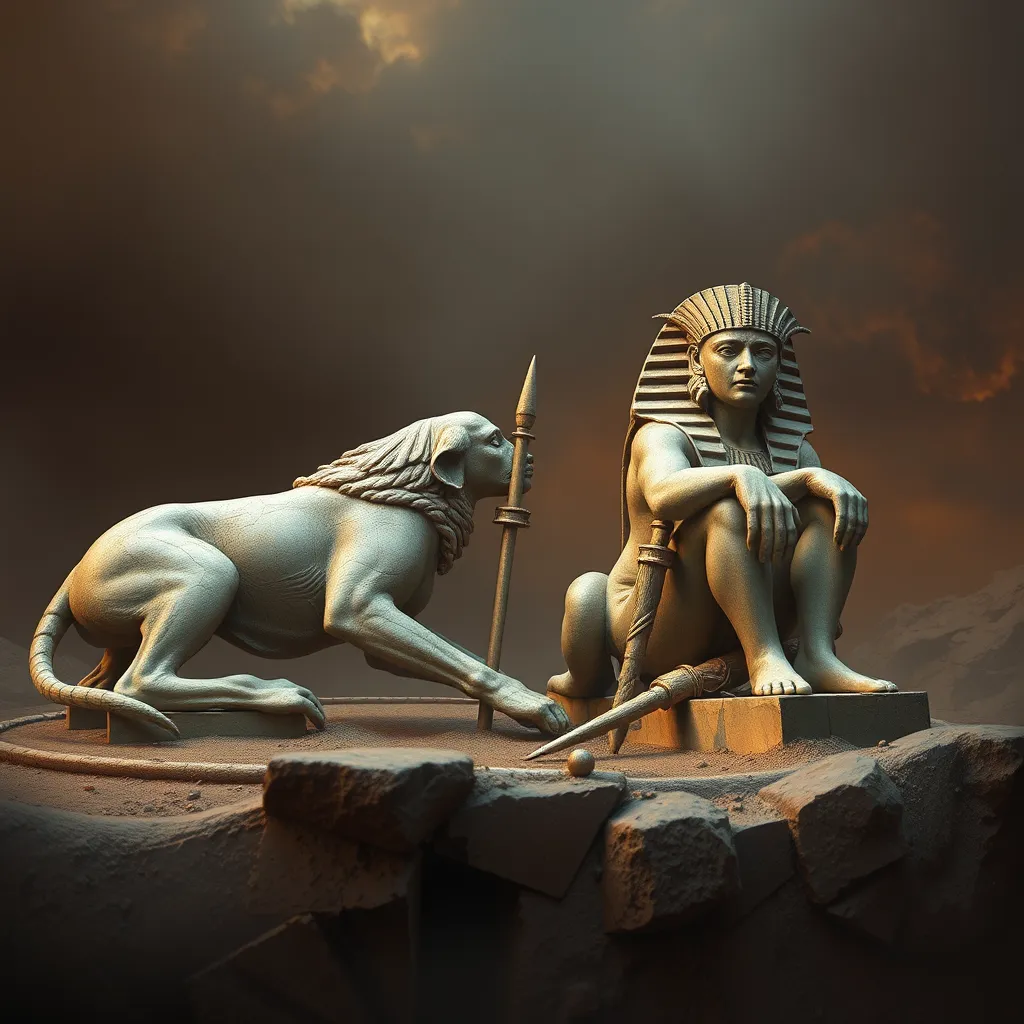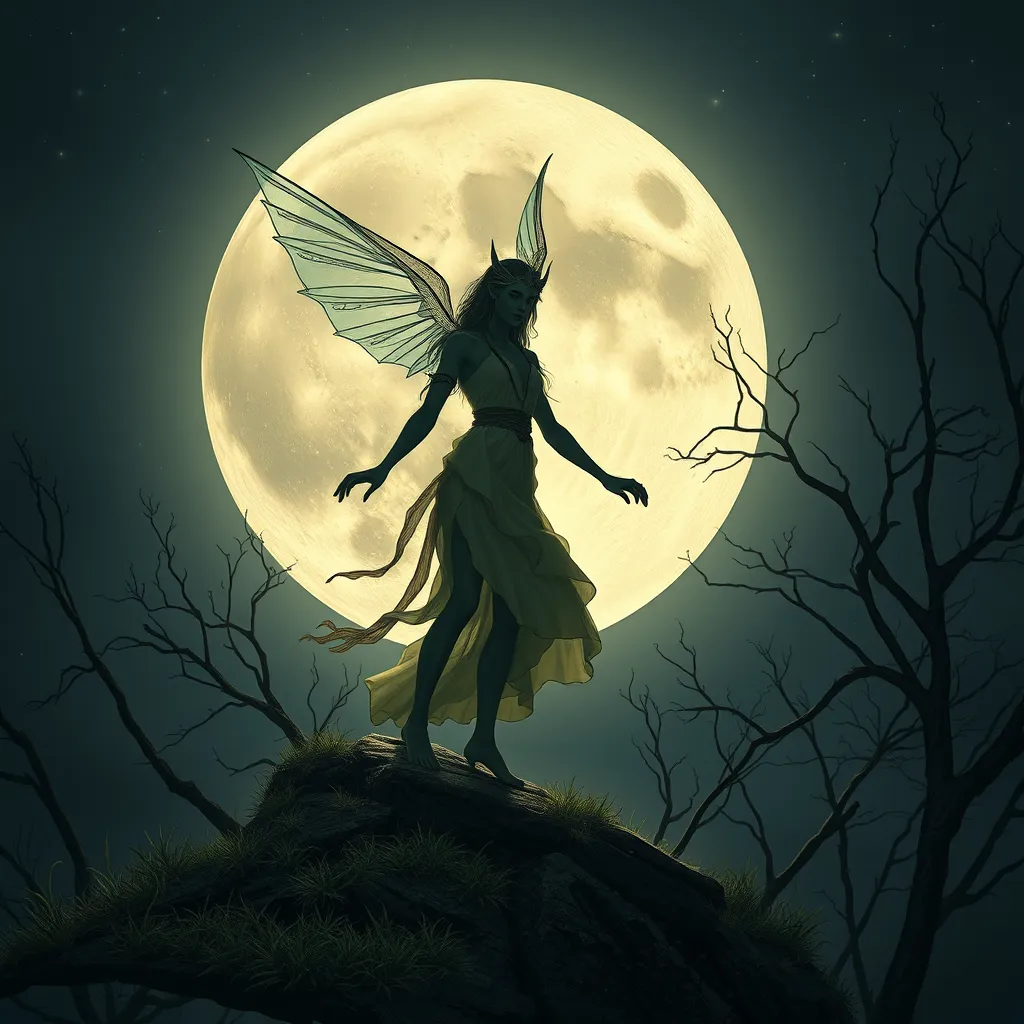The Journey of the Qilin: A Mythical Beast’s Path to Enlightenment
I. Introduction to the Qilin
The Qilin, often described as a hybrid creature resembling a unicorn or dragon, holds a significant place in the pantheon of mythical beasts. Revered in various cultures, particularly in East Asia, the Qilin symbolizes prosperity, good fortune, and the embodiment of virtue. Its majestic presence in mythology serves as a reminder of the deep-seated values and beliefs that have shaped human understanding of morality and enlightenment.
Culturally, the Qilin has its origins deeply rooted in ancient Chinese mythology, where it is considered an omen of peace and a harbinger of great leaders. The historical context of the Qilin is rich, reflecting the philosophical and spiritual beliefs of Chinese civilization and beyond. As a mythical creature, the Qilin is often depicted with features such as cloven hooves, a dragon-like head, and a body covered in scales, symbolizing its connection to both land and celestial realms.
II. The Qilin’s Mythical Origins
The origins of the Qilin can be traced back to ancient texts and depictions found in Chinese literature, where it is often mentioned alongside other legendary creatures. One of the earliest references to the Qilin can be found in the “Book of Rites,” a Confucian classic, which describes it as a creature that appears during the reign of a benevolent ruler.
The Qilin’s connections to Chinese mythology and folklore extend beyond mere appearances. It is often associated with the arrival of wise leaders and is believed to manifest in times of peace and prosperity. In this context, the Qilin serves as a symbol of auspiciousness, often depicted alongside other mythological figures such as the dragon and phoenix.
- Symbol of prosperity: The Qilin is believed to bring wealth and good luck.
- Harbinger of good fortune: Its appearance is seen as a sign of favorable circumstances.
- Protector of the innocent: The Qilin is often viewed as a guardian of virtue.
III. The Qilin’s Role in Spirituality
In the realm of spirituality, the Qilin is perceived as a messenger of divine will, often acting as an intermediary between the heavens and humanity. Its presence in spiritual contexts highlights its role in conveying important messages and prophecies. The Qilin is commonly associated with both Confucianism and Taoism, where it embodies the principles of righteousness and moral integrity.
Religious rituals often incorporate the Qilin as a symbol of reverence and respect for the divine. Its image is used in various ceremonies aimed at invoking blessings and protection. The significance of the Qilin in these rituals underscores its status as a creature of high virtue, serving as a model for believers to aspire to.
IV. The Qilin’s Journey Through Different Cultures
As the Qilin traversed geographical boundaries, it evolved into various forms across East Asian cultures. In Japan, for example, the Qilin is known as the “Kirin,” and it is often depicted with a more deer-like appearance, symbolizing similar virtues of peace and prosperity. In Korea, the Qilin is referred to as “Girin,” and it embodies the same auspicious qualities.
Cross-cultural influences have led to adaptations of the Qilin in art and literature. Its image has been embraced in modern contexts, reflecting the ongoing fascination with this mythical beast. From traditional paintings to contemporary graphic novels, the Qilin continues to inspire creativity and artistic expression.
V. The Path to Enlightenment: The Qilin’s Trials
The journey of the Qilin can be seen as an allegorical representation of personal growth and the pursuit of enlightenment. Myths surrounding the Qilin often involve key challenges and trials that test its character and resolve. These narratives serve as powerful metaphors for the human experience, illustrating the importance of perseverance and moral integrity.
Some of the key challenges faced by the Qilin include:
- Confrontation with malevolence: The Qilin often encounters evil forces that it must overcome.
- Guiding lost souls: The Qilin aids those in search of redemption and enlightenment.
- Protecting the innocent: The creature often stands as a guardian against injustice and wrongdoing.
Through these trials, the Qilin learns valuable lessons, gaining wisdom that emphasizes the importance of compassion, justice, and selflessness. The journey of the Qilin encapsulates the idea that true enlightenment is achieved through overcoming adversity and embracing virtue.
VI. The Qilin and Its Symbolic Teachings
The Qilin embodies a range of virtues that resonate deeply within the human spirit. Kindness, justice, and wisdom are at the forefront of its symbolic teachings. These qualities inspire individuals to strive for personal and societal harmony, encouraging a collective pursuit of enlightenment.
The Qilin serves as a model for how one can navigate the complexities of life with grace and integrity. Its teachings remind us that:
- Kindness: Compassion towards others fosters a harmonious community.
- Justice: Upholding fairness and equity is essential for a just society.
- Wisdom: Seeking knowledge and understanding leads to personal growth.
In this way, the Qilin continues to inspire modern spiritual journeys, encouraging individuals to reflect on their actions and their impact on the world.
VII. Contemporary Depictions of the Qilin
In contemporary culture, the Qilin has found a place in literature, film, and various art forms. Its enchanting qualities and rich mythology have led to numerous adaptations that reinterpret its story for modern audiences.
Artistic representations of the Qilin can be found in:
- Literature: Many authors incorporate the Qilin into fantasy novels and folklore retellings.
- Film: The Qilin appears in animated features and live-action films, captivating viewers with its mystical charm.
- Fashion and design: The Qilin’s imagery is often utilized in fashion collections, home decor, and graphic designs.
The ongoing relevance of the Qilin in today’s world highlights its enduring legacy and the universal themes of virtue and enlightenment that it represents.
VIII. Conclusion: The Enduring Legacy of the Qilin
In summary, the Qilin’s journey through mythology, spirituality, and culture reveals its profound significance as a symbol of enlightenment and virtue. Its trials and teachings inspire individuals to embrace kindness, justice, and wisdom in their own lives. The Qilin’s timeless appeal continues to resonate across generations, reminding us of the importance of striving for personal growth and nurturing a harmonious society.
As we reflect on the Qilin’s legacy, let us remember that the pursuit of enlightenment is a journey worth undertaking. The qualities embodied by the Qilin serve as a beacon of hope and inspiration, guiding us as we navigate our own paths toward a better world.




